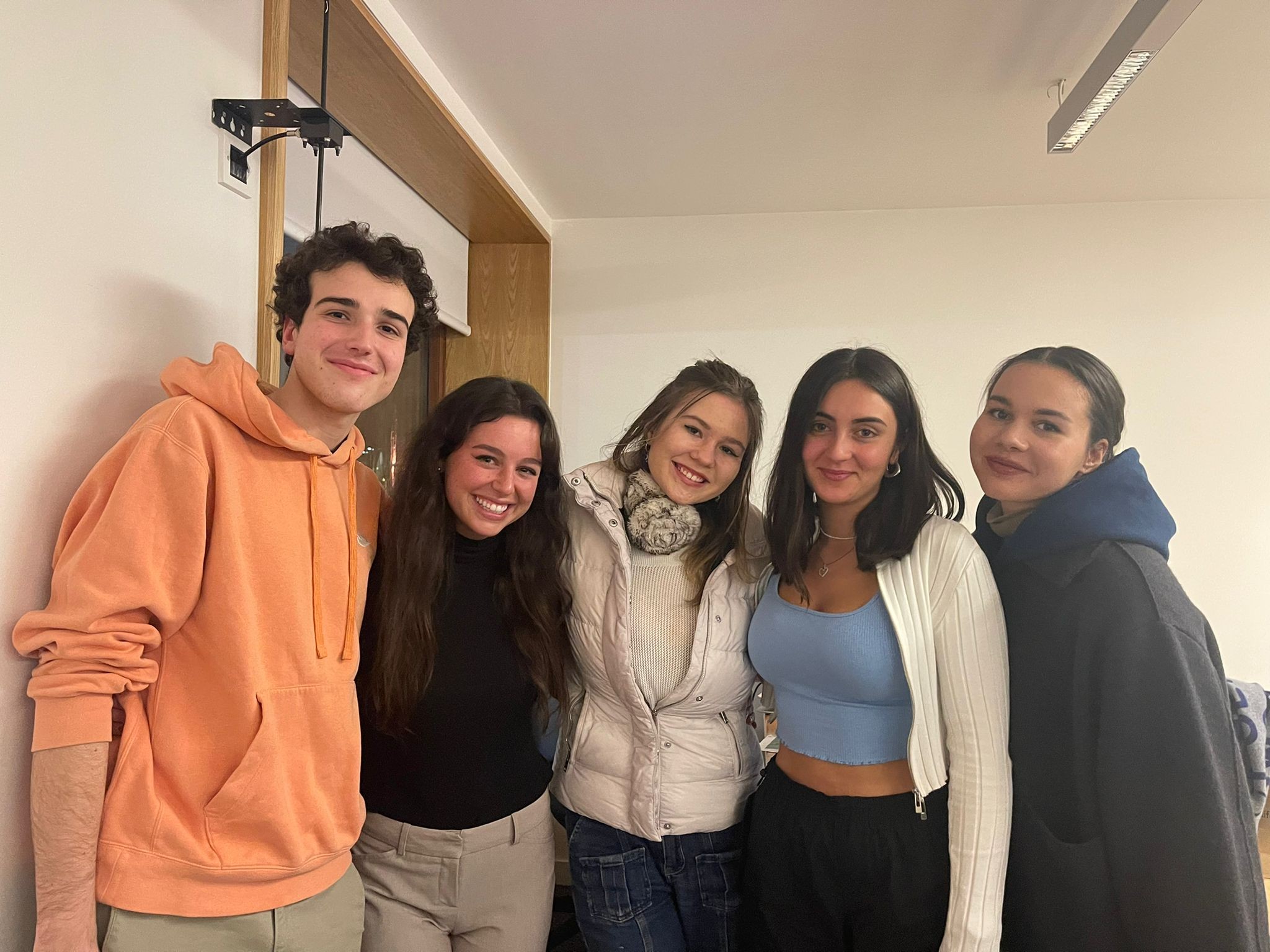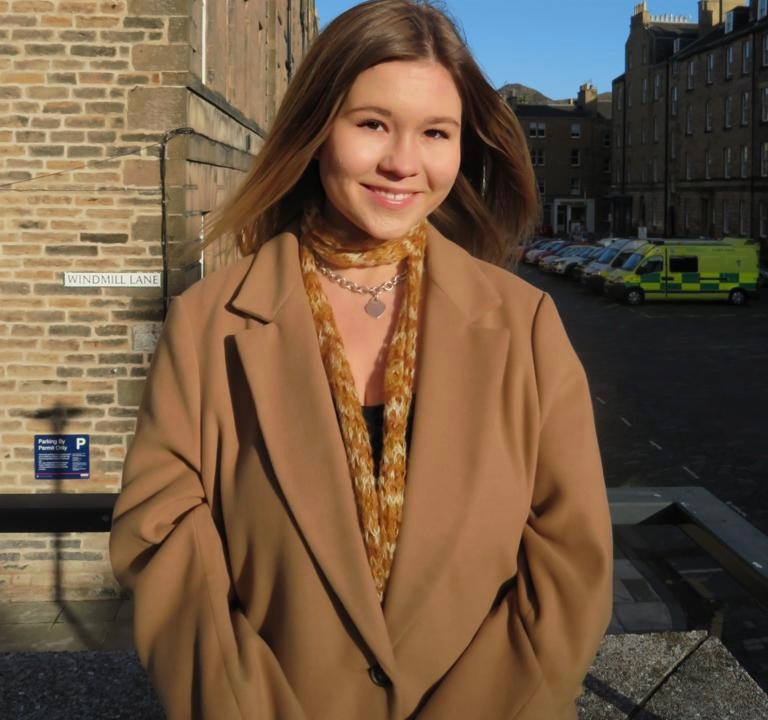We caught up with the brilliant and insightful Polina Vekchina a few weeks ago and have shared our conversation below.
Hi Polina, thank you for being such a positive, uplifting person. We’ve noticed that so many of the successful folks we’ve had the good fortune of connecting with have high levels of optimism and so we’d love to hear about your optimism and where you think it comes from.
I believe that optimism and gratitude are closely intertwined. I strive to remind myself that life presents countless opportunities, and ultimately, it’s within my control whether my day turns out positively or negatively. As someone who is spiritually inclined and attuned to the law of attraction, I am also a firm believer in the power of manifestation. I embrace the notion that much of what we attract is influenced by our thoughts, and we are the sole architects of the reality we desire.
Let’s take a small detour – maybe you can share a bit about yourself before we dive back into some of the other questions we had for you?
As an individual with a background in Social Anthropology and Politics, my interests and passions lie in understanding human behaviour, societal dynamics, and the factors that shape our perceptions and interactions. Through my academic pursuits and diverse experiences, I have developed a deep appreciation for the complexities of human culture and the importance of empathy and understanding in fostering well-being and mental health.
One of the most exciting aspects of my journey has been the opportunity to explore and engage with different cultures and communities, both academically and experientially. From my involvement in the Edinburgh University Social Anthropology Society to my internships at institutions like Eton College and One Edinburgh, I have had the privilege of delving into diverse social contexts and gaining insights into the rich tapestry of human experiences.
What I find most special about my work is the opportunity to bridge academic knowledge with real-world applications, particularly in areas related to mental health and well-being. By studying humans before “humans,” as anthropology often refers to it, I aim to uncover the underlying drivers of human behaviour and contribute to creating more inclusive and empathetic societies.
In terms of new developments, I am currently researching the intersection of first loves and identity formation, examining how romantic relationships during adolescence contribute to the development of individual identity. This research is important and relevant for several reasons. Firstly, adolescence is a critical period for identity formation, marked by significant changes in cognitive, emotional, and social domains. Romantic relationships play a central role during this developmental stage, as they often serve as a platform for self-exploration, emotional growth, and the negotiation of identity-related challenges.
Understanding the influence of first loves on identity formation can provide valuable insights into the psychological processes underlying adolescent development. By exploring factors such as attachment styles, self-concept formation, and identity exploration within the context of romantic relationships, my research seeks to shed light on the mechanisms through which these experiences shape individuals’ sense of self.
Furthermore, understanding the role of first loves in identity formation can inform interventions aimed at promoting resilience and adaptive coping strategies among young people. By recognising the significance of romantic relationships in shaping identity development, educators, mental health professionals, and community organisers can tailor their interventions to address the unique needs and challenges faced by adolescents navigating these experiences
Overall, I believe that my unique blend of academic training, practical experiences, and passion for understanding human dynamics positions me to contribute meaningfully to conversations surrounding well-being, empathy, and societal change. I am excited about the possibilities that lie ahead and remain dedicated to using my voice and platform to advocate for a more compassionate and inclusive world.
There is so much advice out there about all the different skills and qualities folks need to develop in order to succeed in today’s highly competitive environment and often it can feel overwhelming. So, if we had to break it down to just the three that matter most, which three skills or qualities would you focus on?
Firstly, curiosity has been instrumental in driving my academic and personal growth, prompting me to explore diverse topics and perspectives that have enriched my understanding of the world. Proactivity has empowered me to take the initiative in pursuing opportunities and overcoming challenges, fostering a mindset of resilience and adaptability. Additionally, my commitment to collaborative efforts has allowed me to leverage the collective expertise and resources of teams, leading to innovative solutions and impactful outcomes. My advice would be to embrace curiosity as a catalyst for continuous learning and growth, to cultivate proactivity as a tool for seizing opportunities and driving progress, and to prioritise collaborative efforts for harnessing the collective potential of diverse perspectives and skill sets.
If you knew you only had a decade of life left, how would you spend that decade?
Every day, being surrounded by so many incredibly talented and intelligent individuals, I deal with a load of imposter syndrome. It’s that nagging feeling that despite my accomplishments and skills, I somehow don’t measure up or belong. I often find myself questioning whether I deserve to be in certain spaces or whether my contributions are valuable.
However, over time, I’ve learned to navigate these feelings by reframing my perspective. Instead of viewing imposter syndrome as a sign of inadequacy, I’ve come to see it as a natural byproduct of growth and ambition. It’s a reminder that I’m pushing myself beyond my comfort zone and striving for excellence. I’ve also found solace in seeking support from mentors and peers who reassure me of my capabilities and offer valuable insights.
Ultimately, I’ve realised that imposter syndrome is a common experience shared by many high-achieving individuals, and by acknowledging it and embracing self-compassion, I’m able to overcome its grip and continue pursuing my goals with confidence.
Contact Info:
- Instagram: pol.vek
- Linkedin: https://www.linkedin.com/in/polvek/

Image Credits
Polina Vekchina




